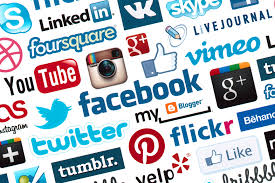Two of the greatest advances of the 21st century is the creation of the smartphone and the birth of social media. Today, people living in different states or who are in different social circles can discuss social issues, having conversations with people who have like-minded interests. This was not as easily prevalent in the past. Despite the positive aspects of social media, I have concerns with this technology. As a social worker who has worked with adolescents for over 14 years, I have seen that social media has helped socially isolated adolescents make social connections with other individuals, has not been possible before this technology. And yet, I also fear these adolescents are now unwilling to take risks and make attempts to establish friendships with other youth at their schools, as they feel most comfortable with friendships solely on social media. Additionally, there is the concern that the adolescent may be unintentionally interacting with a dangerous adult pretending to be a youth.
Adults also experience difficulty with social media. Social media is a platform where individuals are able to express their viewpoints, including anger, on posts they have written regarding matters that are important to them. A person may feel validated when they receive multiple comments or likes from other individuals who agree with their perspective. Because of this outlet, I have seen individuals stop having meaningful in-person conversations about their viewpoints. As adults stop having in-person discussions, the ability to hear another perspective is lessened, reducing the ability to hear alternative perspectives and understand those perspectives, limiting growth opportunities. Furthermore, as adults continue to receive validation from their peers on social media posts where anger is expressed, the adults I have worked with tend to experience even more angry feelings as a result of the positive feedback.
When working with either adolescents or adults who spend a lot of time on social media, I first evaluate if this behavior is problematic. If I determine if the time spent on social media is having a negative impact on the person’s life, I facilitate a process to develop discrepancy in the individual’s belief that the time spent on social media is not a concern. I assist the individual to consider taking the initiative to meaningfully interact with people they know in person. Then I teach the individual skills they can utilize to manage their anxiety at the moment when having an in-person conversation. Though it may be anxiety-provoking to communicate with people in-person, it can be more fulfilling than strictly interacting with people through social media.
Meet with James, call us today!
T. 847.370.0606 Opt.2
@email. James@attentiontowellness.com


Add Comment